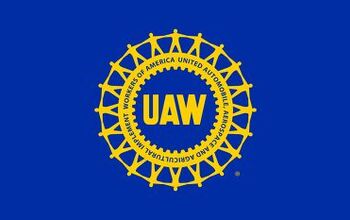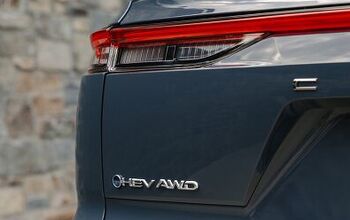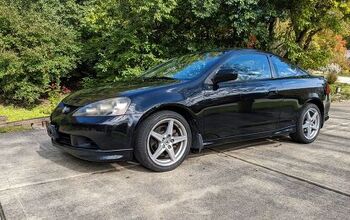Japan, The Land Of Open Relationships: Platform Swapping a Go-Go

Developing and manufacturing new cars is expensive. You need a lot of volume to amortize the cost. That’s why more and more Japanese automakers skip the development and manufacturing part altogether. They outsource both and slap their badge on someone else’s car. Last in that development has been Mitsubishi. Ten days ago, Nissan and Mitsubishi snuggled closer and added more OEM deals to the ones they already had. Yesterday, it was announced that Suzuki would supply subcompact vans to Mitsubishi.
Suzuki will supply its latest 1.2 liter subcompact van Solio to Mitsubishi, which will start selling them as a yet unnamed Mitsubishi vehicle beginning in spring 2011. Just another OEM deal? Japan’s Yomiuri Shimbun sees a bigger picture.
The paper notes that “Mitsubishi is the third automaker that will sell Suzuki-manufactured cars as part of an OEM deal after Nissan and Mazda.” Then, the Yomiuri paper reminds the reader that there has been a similar deal between Toyota and Fuji Heavy, in which Toyota will produce future small Subarus. The paper sees a trend: Consolidation, Japan style:
Through OEM partnerships, the nation’s auto industry is gradually reorganizing into three groups–Toyota (with Daihatsu and Fuji Heavy), Nissan (with Mitsubishi Motors Corp, Mazda Motor Corp. and Suzuki) and Honda, which is independent.
By keeping open relationships, things stay spiced-up and interesting. Note that the paper sees Suzuki in the Nissan (and hence Renault) camp, and no mention of Volkswagen, which owns not quite 20 percent of Suzuki and is already getting impatient.

Bertel Schmitt comes back to journalism after taking a 35 year break in advertising and marketing. He ran and owned advertising agencies in Duesseldorf, Germany, and New York City. Volkswagen A.G. was Bertel's most important corporate account. Schmitt's advertising and marketing career touched many corners of the industry with a special focus on automotive products and services. Since 2004, he lives in Japan and China with his wife <a href="http://www.tomokoandbertel.com"> Tomoko </a>. Bertel Schmitt is a founding board member of the <a href="http://www.offshoresuperseries.com"> Offshore Super Series </a>, an American offshore powerboat racing organization. He is co-owner of the racing team Typhoon.
More by Bertel Schmitt


































Comments
Join the conversation
I missed the part where Mazda got hooked-up with Nissan. Last I knew, and this was about 5 years ago, Mazda bought some kind of previous gen C or C/D size wagon from Nissan and sold it as a kind of utility/service vehicle, but simultaneously bought at least half-a-dozen Kei-class vehicles from Suzuki (some that come to mind, Carol, Scrum Van, Scrum Wagon, Scrum truck, Laputa, and more.) Has something bigger occurred since the Ford equity-participation draw-down? (Or is Shimbun prognosticating?)
For Japanese mini/kei-cars Suzuki has always had an OEM sort of deal with a lot of manufacturers. The reason is that kei cars are simply unprofitable and most of the parts are standardized by law, the cars dimensions, 660cc engine inline-3, everything. So this is nothing new. What the Japanese need to do is parts and platform share between all their major cars overseas. We may see a Mitsubishi-Nissan alliance, Toyota using the flat-4 engine in their FT86. But it shouldn't stop there. A Nissan-Toyota truck tie-up, a Mazda should share their Sky-G, Sky-D engine technology with other Japanese makers in exchange for other technology (Mazda's Sky engines are amazing because both the diesel and gasoline are near identical and share most parts between the two versions). Toyota could also supply V6, V8s to Mazda, Mitsubishi, etc. Even Honda could probably benefit from V8 for their Acura shared with another makers. The fact that this 'open-relationship' only extends to kei cars that are irrelevent outside of Japan is the real shame.
In the end, the difference will be the "skin" and the calibration.
Living somewhere that gets shiploards of used Jap cars imported this has obviously been going on for years Mazdas badged as Hondas Isuzus badged Honda Rovers badged Honda Mazda vans badged Nissan Subaru legacy badged Isuzu the lists are endless but they all share 1 important item Appalling handling Jap/US comfort suspension is crap where the local new versions of the same cars corner and handle ok Jap imports are lethal. Hopefully with their new skin deep cars somebody teaches these idiots some proper suspension engineering.